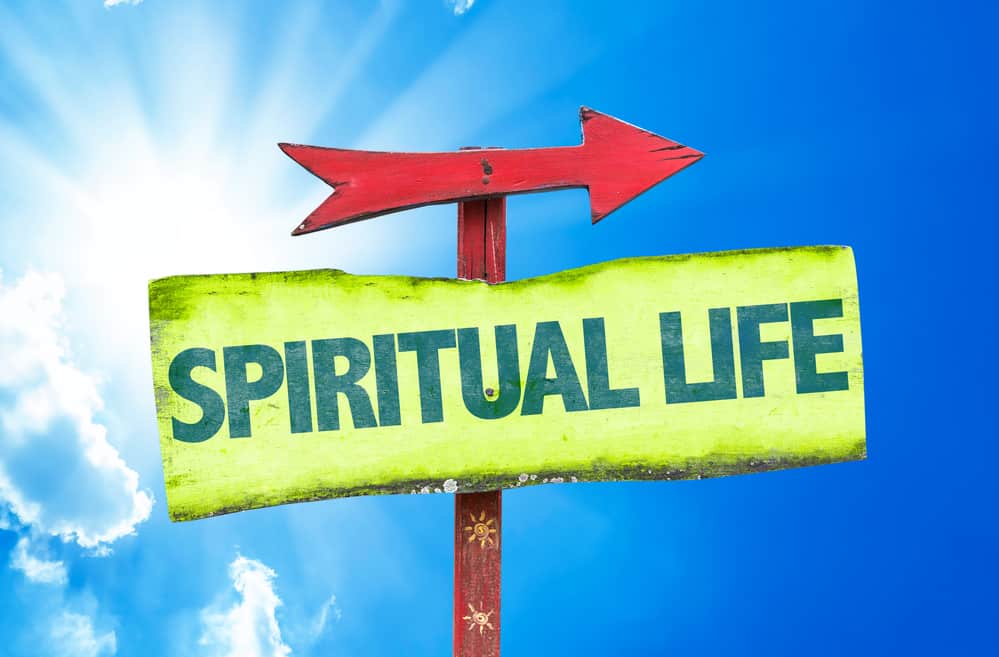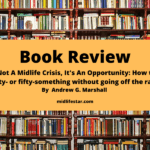Many people are unsure of what to anticipate as their midlife spiritual journey begins, and as a result, they find it difficult to cope. A spiritual journey has many facets, and this article will examine them and discuss how we may cope with them more positively. First, it is essential to understand why religion and spirituality differ.
Table of Contents
Religion and Spirituality are Different from Each Other

A midlife spiritual journey is something anyone may achieve even if we do not adhere to any religious beliefs. Not attending to a place of worship or believing in a higher power is required, but rather a belief in oneself, connectivity with others, and oneness with the cosmos. Spirituality is beneficial to us, especially as we approach midlife. It provides us with a channel to process our emotions and deal with situations beyond our ability to control.
Midlife spirituality is about our sense of purpose, connection, and comfort with the world and everyone who lives in it. Each of us has a unique perspective on spirituality, which, in contrast to religion, tends to be a more personal experience for each of us. Depending on who you ask, this might imply belief in astrology, crystal healing, rituals, and other such things. Practicing gratitude, writing, and meditation may be as easy as practicing mindfulness for others. The practice of spirituality is entirely neutral; there is no right or wrong. It is what we make of it, and anybody may engage in this activity regardless of age.
Spirituality and Midlife

As we get older, we begin to perceive the world around us in a new light. Personal experiences and different stages of life begin to shape us and make us more refined with time. Our spirit changes as we progress from one version of ourselves to another version of ourselves. In terms of our spiritual selves, they are “those things that support that core; those things that energize us and give us a feeling of bravery, or heart, for our daily lives.”
As we grow older, spirituality has the potential to become a more critical component in our lives. Start by asking yourself questions during your midlife journey, such as: “What is my purpose?” or “What do I want to achieve?”
- What am I doing here?
- Is there life after death, or is it only a dream?
- Is it still possible to communicate?
- What is the most important thing in this world to me?
- What is the most optimal way for me to live out the rest of my days?
A midlife spiritual journey is a broad and very subjective concept. There isn’t a single way to go about this. Rather than being a dogmatic statement, it is very personal and intensely felt. Spirituality is all about our emotions, how we think, perceive, and process the world and events around us, and how we view and process ourselves. Even though religion is not required to achieve spirituality, many people consider it one of the numerous paths to spirituality.
Numerous variables come into play as we get older, all of which have the potential to strengthen our desire to pursue spirituality. These considerations include, but are not limited to, life events such as the following:
Retirement – One of the most significant adjustments in life is the end of our regular jobs and the roles we’ve performed for many years. While many people look forward to retirement with bated breath, the transition may be frightening and unexpected. It is an appropriate moment to ponder what we should do with the remainder of our lives, consider our purpose, and ponder what is most important to us. As a result, there is a greater chance of spirituality.
Death – We may begin to mourn more frequently and lose loved ones at an earlier age than we did when we were younger. As a result, we become existentially conscious that the people in our lives are not eternal and that we are not immortal. Understanding mortality may be beneficial since it frequently results in a desire to practice appreciation and be more present with those we care about and enjoy the time we have while we have it.
Reliance on Others as We Grow Older – As we grow older, we may find ourselves losing a little of our independence. Whether we get ill, lose a partner, or experience something in between, it may become more challenging to live independently for long periods. As we rely on others, we acknowledge that we are dependent on others and interconnected. We are not, and should not be, on our own.
Increased Awareness of Our Mortality – There has been a discernible rise in our awareness of our mortality. We question our purpose in life.
- Why are we here?
- What are our intentions?
- How have we used our time thus far?
All of this might lead us to a more introspective and spiritual examination of ourselves. And the lives we’ve lived up to this point in our lives.
A midlife Spiritual Journey has Many Advantages

Spirituality has a significant impact on our mental and physical health and our overall quality of life. Some people have even reported having a more extraordinary ability to absorb emotions and injuries more quickly after converting to a spiritual lifestyle. In many respects, music is a sort of therapy in and of itself since it can instill emotions of calm, comfort, and a small amount of direction within us.
Additionally, spirituality may leave us with the following feelings: a sense of purpose; the ability to cope with and process destructive emotions; increased confidence; humility; dignity; and a sense of connectedness.
How to Engage in Spiritual Practice

There are several avenues via which one might engage in spiritual practice during a midlife spiritual journey. There is no one way to go about it, no right way to go about it, and no wrong way to go about it.
The following are some of the most frequent and widespread ways to begin practicing spirituality at any point in your life:
Meditate – Meditation is an excellent way to connect with your inner self. It is critical to retain that connection to stay in touch with your spiritual views. It’s also an excellent method to help you focus on the current moment. You can start seeing results as soon as you practice for 5-10 minutes a day for five days.
Spending too much time dwelling on the past during a midlife spiritual journey might harm one’s inner serenity. Disappointments or painful experiences might be depressing. Train yourself to focus on what is directly in front of you.
Keeping your attention on the now also stops you from thinking about the future. Every day, everywhere, uncertainty looms. However, focusing on the “what ifs” may cause you to lose out on the excellent chances that are there in front of you.
Make decisions based on your values – Living a life following your beliefs is the most effective approach to be genuine to yourself. As a result, your spiritual life can thrive as a result of this truth. Spiritual wellbeing also implies that you may make yourself accessible to assist others.
What are your priorities? Is it truth and honesty? Is it a charitable act?
Whatever ideals are at the root of your spiritual makeup should always be considered. Make decisions based on what you know is good for your spirit.
Connect with the significance of events – Everything occurs for a purpose! As corny as it may seem, this is the most truthful explanation for life. What you do with the information provided is a different story.
You may not like or comprehend a scenario. However, rather than responding, take the time to connect with the underlying meaning.
It’s critical to recognize that not everything is designed to work for your benefit during your midlife spiritual journey. Living in a world with 7 billion other individuals should teach you that balance is for everyone. When you recognize this, you will find it easier to deal with problems.
Accept other people’s points of view – The residents of the planet are just as they should be. It is necessary to embrace this to reach real spiritual well-being. This is especially true when it comes to other people’s opinions.
Tolerance practice helps you to open your mind to a wide range of possibilities. It compels you to reflect on the actual purpose of existence.
Instead of imposing your ideas on others, concentrate on obtaining a better understanding of them. You might be shocked by what you discover!
These are only a few examples of the numerous ways one might engage in spiritual practice during a midlife spiritual journey. In the end, there is no right or wrong approach; it is simply a matter of discovering what feels suitable for you. Spirituality is fundamentally concerned with the issue of why we are here and how we are linked. So, take pleasure in your life, love those who are a part of it, and draw them closer to you.
In Conclusion
Spirituality is beneficial to us, especially as we approach midlife. It provides us with a channel to process our emotions and deal with situations beyond our ability to control. As we get older, spirituality has the potential to become a more critical component in our lives. Start by asking yourself questions such as: “What is my purpose?” or “What do I want to achieve?”. Spirituality is all about our emotions, how we think, perceive, and process the world and events around us, and how we view and process ourselves.
A midlife spiritual journey is a broad and very subjective concept. There isn’t a single way to go about this. Rather than being a dogmatic statement, it is very personal and intensely felt. Spirituality has a significant impact on our mental and physical health and our overall quality of life. Some people have reported having a more extraordinary ability to absorb emotions and injuries more quickly after converting to a spiritual lifestyle.
There are several avenues via which one might engage in spiritual practice during a midlife spiritual journey. Spirituality is fundamentally concerned with the issue of why we are here and how we are linked. Many people are unsure of what to anticipate as their midlife spiritual journey, and as a result, they find it difficult to cope. A spiritual journey has many facets, and this article will examine them and discuss how we may cope more positively.











